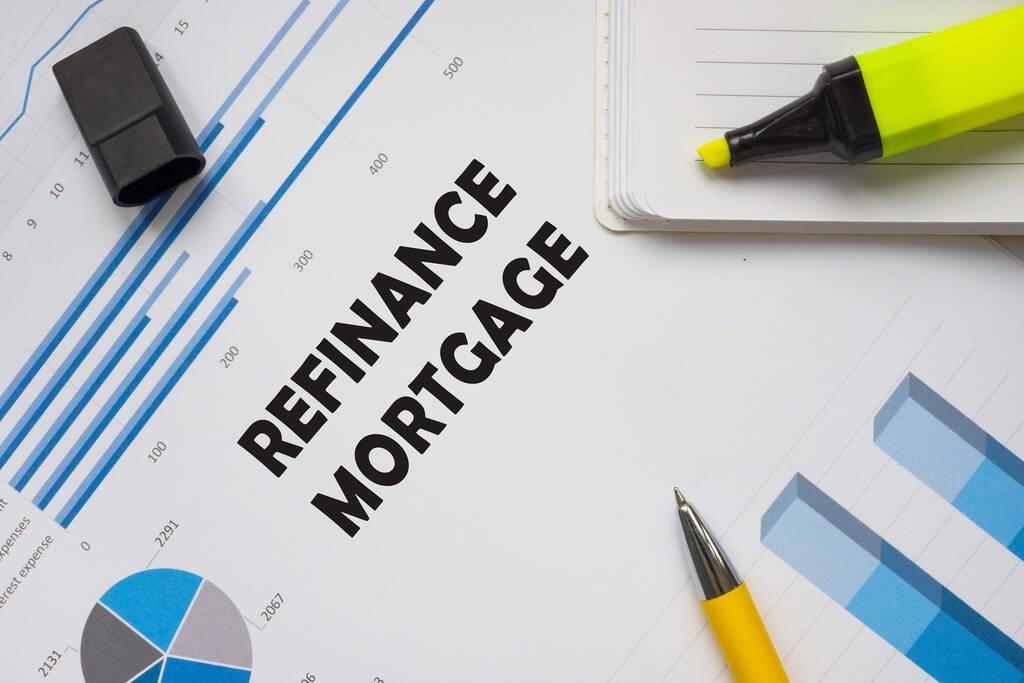
Refinancing a mortgage can be a great way to save money and reduce your monthly payments. It involves taking out a new loan with different terms than your current loan, usually to reduce interest rates or monthly payments. Refinancing can also provide you with access to cash if you have built up significant equity in your home, allowing you to use that money for investments or other needs. With the right refinancing strategy, homeowners can save thousands of dollars over the life of their loan while reducing their debt burden. In this article, we will discuss what refinancing is, how it works, and some tips on making sure it is right for you.
Definition of Refinancing a Mortgage
Refinancing a mortgage is a financial process that involves taking out a new loan to pay off an existing mortgage. This allows homeowners to take advantage of lower interest rates, reduce their monthly payment or shorten the length of their loan term. Refinancing can also be used to access equity in your home for debt consolidation, home improvements and other purposes.
When you refinance your mortgage, you are essentially replacing your existing loan with another one with different terms. The most common reason for refinancing is to secure a lower interest rate than the original loan had; this could significantly reduce the amount of money spent on interest payments over time. Refinancing could also provide an opportunity to shorten the term of your loan, reducing the total amount paid over time while increasing monthly payments.
To refinance your mortgage, you will have to go through an application process similar to when you applied for the original loan; this includes submitting financial paperwork such as income and employment verification documents along with credit score information and proof of assets. Your lender may require an appraisal or other additional documentation depending on how much equity is in your house or if any liens against it need resolving before refinancing can proceed.
Reasons to Refinance a Mortgage
If you are a homeowner, you may be considering refinancing your mortgage. Refinancing can be a great way to reduce your monthly payments and save money on interest over the life of the loan. Here are some of the top reasons why you should consider refinancing your mortgage:
- Lower Your Payment: Refinancing can help you lower your monthly payment if rates have gone down since you took out your original loan. This could mean hundreds or even thousands of dollars in savings each month for homeowners with larger loans.
- Change Loan Terms: If rates have gone up, refinancing can also help homeowners switch from an adjustable-rate mortgage (ARM) to a fixed-rate loan to lock in current lower rates and avoid possible rate increases in the future.
- Get Cash Out: Homeowners who have built up equity in their homes may be able to use cash-out refinance mortgage NZ options to access that equity and borrow against it at low-interest rates for things like home improvement projects or debt consolidation purposes.
Types of Mortgages That Can be Refinanced
Mortgage refinancing is a great way to save money on your home loan, but it can be intimidating to navigate all of the different types available. Before you dive into the process, it’s important to understand the different types of mortgages that can be refinanced. This article will explain the most common types of mortgages that can be refinanced so you’ll have a better understanding of what options are available to you.
The first type of mortgage that can be refinanced is a conventional loan. A conventional loan is not insured or guaranteed by any government program. These loans typically require a higher credit score and down payment than other loan programs and may also have more stringent income requirements as well. Conventional loans are often fixed-rate mortgages, meaning they offer a fixed interest rate for the entire life of the loan, making them ideal for those who want predictable monthly payments with no surprises down the line.
Another type of mortgage that can be refinanced is an FHA (Federal Housing Administration) loan. FHA loans are government-backed loans with lower credit scores and down payment requirements than conventional loans, making them accessible to borrowers who wouldn’t qualify for other financing options.

Benefits of Refinancing a Mortgage
If you are considering refinancing your mortgage, there are several potential benefits. Refinancing can be used to pay off your existing loan faster, reduce monthly payments or take out additional cash from the equity in your home. Here are some of the key advantages of refinancing a mortgage:
- Lower Interest Rates: When rates go down, many homeowners take advantage and refinance their mortgages to secure a lower interest rate. This can save hundreds or even thousands of dollars over the life of the loan and significantly reduce monthly payments.
- Decrease Loan Term: Refinancing to a shorter-term loan is another way to lower interest costs over time as well as save on total payments due in the long run. By switching from a 30-year fixed-rate mortgage to one with 15 years remaining on it, for example, you may be able to save money by paying off your loan faster and reducing interest costs over time.
- Take Cash Out: During times when property values have increased significantly since the origination of an existing mortgage, borrowers may opt for refinancing so they can take out additional cash from their home’s equity. This is especially beneficial if you need money for home improvements or other large expenses without having to apply for additional loans that could entail further complexities and approval processes.
Conclusion
In conclusion, refinancing your mortgage can be a great way to save money in the long run. Not only can it help you lower your monthly payments, but it also allows you to switch from an adjustable-rate mortgage to a fixed-rate mortgage, or vice versa. Additionally, if you have equity in your home, refinancing could help you access some of that equity for other purposes such as home improvement projects or debt consolidation. However, it is important to remember that refinancing is not always the best option and should only be considered after careful research and consideration of all of your options.